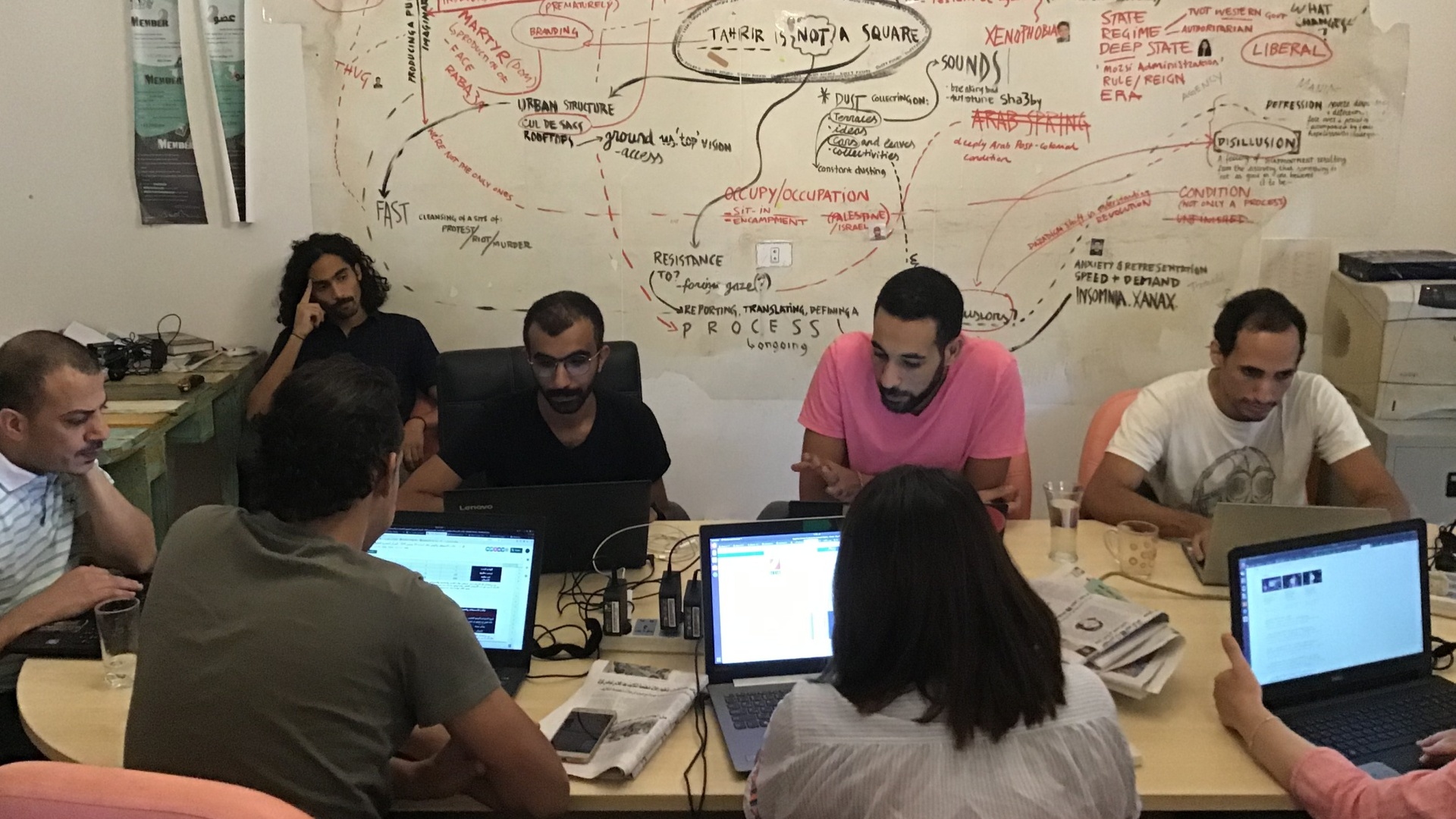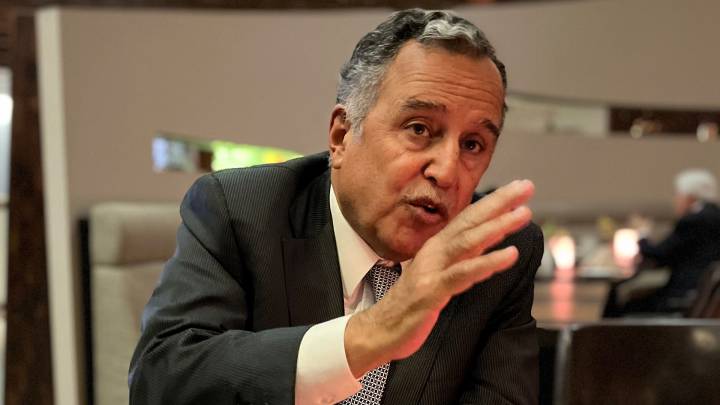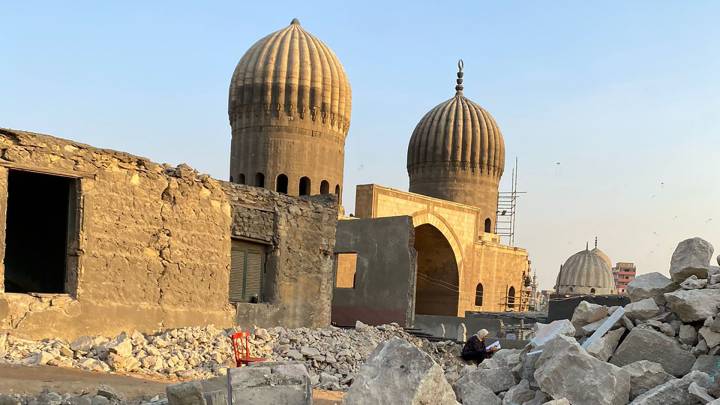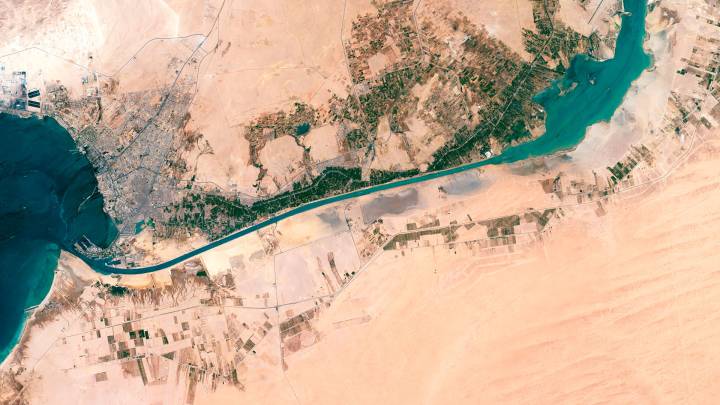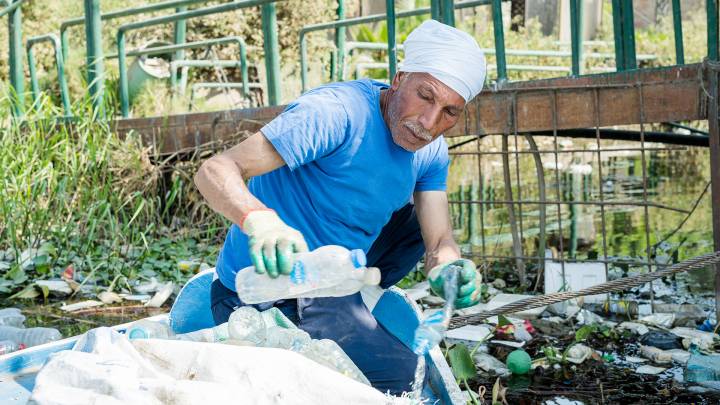The raid on independent Egyptian new outlet, Mada Masr, has drawn worldwide attention. One of the last critics of the Egyptian government may be unsilenced for now, but freedom of press in the country remains at an all-time low.
What happened?
The raid on of the office of Mada Masr was preceded by the arrest of senior editor, Shady Zalat, in the early hours of 23 November. Mada Masr released a statement saying that Zalat’s whereabouts were unknown. The raid on the office of Mada Masr began at about 13:30 on 24 November. Nine plain-clothed armed security officials seized mobile phones and laptops and subjected the journalists to intense questioning over the course of three hours Lina Attalah, the editor-in-chief, Mohamed Hammama, the managing editor, and reporter Rana Mamdouh were then led away and escorted to Dokki police station. US journalist Ian Louie and British journalist Emma Scolding were taken away and also questioned, as well as two members of a France 24 news crew who had come to talk to Attalah about Zalat’s disappearance.
Following a brief stay in the police station, the journalists were loaded into a police van which apparently set off in the direction of the State Security Prosecution. However, the van was diverted and the three journalists were returned to Dokki police station and were released 18:15. About the same time, Zalat was dropped off by police at Cairo ring road after being held incommunicado for about 30 hours.
The following day the State Security Prosecution released a statement justifying the raid on the grounds of Mada Masr of “spreading false news and rumours” on behalf of the Muslim Brotherhood. On 27 November Egypt’s Ministry of Foreign Affairs claimed in a press release that the actions against Mada Masr were “in accordance with the law” and that the organisation was found not to be in possession of the necessary permit. The ministry’s spokesperson, Ahmad Hafiz, also stressed that “there are no restrictions on freedom of opinion and expression in Egypt” unless such expression is inciting against state institutions or violates the law.
What is Mada Masr?
Mada Masr is one of the last critical voices in the Egyptian press. It was founded as an online publication in June 2013 by former staff member of the Egyptian Independent, which was established in November 2011. The organisation is a remnant of the brief period of openness in the aftermath of the 25 January Revolution, which led to the spawning of several new publications. One such publication is the privately-owned newspaper al-Tahrir, which is currently facing insolvency having been blocked. Mada Masr, however, has endured despite being only available locally through a VPN because the site has been blocked since 24 May 2017.
Since its establishment, it has become probably the most important outlet for news on Egypt and enjoys a wide international following due to publishing content in both Arabic and English. This strong contact with the international press probably was the reason for the authorities thinking twice about prosecuting the Mada Masr employees. In fact, it has been reported that Attalah suspected that the arrest of Zalat in the hours preceding the raid was a trial run by the authorities to see what they could get away with. It was obvious that, with even the European Commission making a statement expressing its concern over the raid, the raid on Mada Masr would not avoid the attention of the international community.
Beyond Mada Masr
President Sisi arrived Berlin on 20 November for a four-day visit to the German capital. He met with leading politicians including the German chancellor, Angel Merkel, the German president, Frank-Walter Steinmeier and the president of the Bundestag, Wolfgang Schäuble. The German Foreign Ministry, Heiko Maas, on a recent trip to Cairo demanded that Egyptians should be allowed to “breathe the air of freedom.” Reacting to the raid on Mada Masr on 25 November, Maria Adebahr, the spokesperson for the German Ministry of Foreign Affairs, stated that Germany was concerned about the “very worrying, deterioration in the freedom of the press in Egypt.”
The country his remains one of the worst for press freedoms in the entire world. During a recent Universal Periodic Review (UPR), the head of Egypt’s delegation claimed that his government had been working hard to implement promises made at the last UPR in 2014. One of these commitments was guaranteeing an environment “conducive to the work of journalists, human rights defenders and civil society organizations.” Despite this, Reporters Without Borders has ranked Egypt 163 out of 180 countries in its 2019 World Press Freedom Index.
Human Rights Watch estimates that about 30 journalists are currently in prison in Egypt subject to a host of accusations, making the country one of the world’s foremost jailers of journalists. Since President Sisi came to power, over 600,000 people have been imprisoned. According to a recent report by the Egypt-based Association for Freedom of Thought and Expression (AFTE), at least 546 websites have been blocked by the Egyptian authorities. BBC News, US-based Alhurra News, and Facebook messenger have also been blocked over the last few months.
As well as harassing journalists, Egyptian intelligence has been gradually acquiring television networks. The intelligence-owned investment firm, Eagle Capital, took a controlling stake in Egyptian Media Group in 2017. Egyptian Media Group owns the television networks ONTV and CBC, and Youm7 newspaper. The GIS also controls al-Hayyat media group and the DMC television network. The appointment of Diaa Rashwan as the chairman of the Syndicate of Journalists in March 2019 also hints at the increasing state control over the media. Since June 2017 Rashwan has been the chairman of the State Information Service, a subordinate organisation to the Egyptian presidency.
The legal landscape is Egypt has also become more hostile to independent journalists. A report published by Amnesty International on 27 November highlighted the expanding role of the Supreme State Security Prosecution (SSSP) in crushing any forms of dissent. The SSSP is a special branch of the Public Prosecution devoted to the prosecution of crimes relating to “state security”. The number of cases prosecuted by the SSSP has sharply increased from 529 in 2013 to 1,739 in the last year.
What are the red lines for journalists covering Egypt?
It is clear that press freedoms in Egypt are under acute strain, however, what is less clear are the redlines that journalists should not cross in Egypt. There have been suggestions that the trigger for the raid was the publication of an article on 20 November which focused on the side-lining of Abdel Fatteh al-Sisi’s son, Mahmoud al-Sisi from a key role in the General Intelligence Service (GIS) to a diplomatic mission in Russia. After speaking to two GIS sources, the article states that the president welcomed the idea to transfer his son to Russia after he had failed to fulfil his responsibilities in his intelligence post. According to the article, Sisi was especially disappointed with his son’s handling of some recent media coverage, an area where the GIS is increasingly in control of.
The president’s family has come under increasing scrutiny in recent weeks after Mohamed Ali, a former military contactor-turned-dissident, highlight the disappearance of Radwa Mohamed. Mohamed posted a series of videos on YouTube claiming that Entissar al-Sisi was “not qualified to be called the first lady of Egypt.”
The Mada Masr article, however, also mentions the role of the UAE in the decision demonstrating the extend of the influence that the Gulf country now wields in Cairo. On 14 November President Sisi travelled to Abu Dhabi to launch a joint $20billion investment fund between the two countries. Meanwhile, the UAE has been involved with the ongoing crisis in Egyptian intelligence for many months including criticising the work of Mahmoud al-Sisi. Mohamed Bin Zayed is also reportedly concerned with leadership of head of the GIS, Ahmed Shabaan.
Crossing many lines
Many of the journalists that remain in detention today in Egypt are not accused of criticising the president’s family or the country links to the UAE. These include journalist and activist Essraa Abdel Fatah who was arrested on 12 October and was allegedly tortured upon here arrest. Abdel Fatah gained international recognition as the “Facebook girl” during the 2011 revolution after urging people to take part in the protests over social media. She is being held under investigation for “joining a terrorist group in achieving its goals”, “disseminating false news” and “misusing social media”. Abdel Fatah’s arrest comes in the aftermath of protests calling for the resignation of President Sisi, which begun on 20 September in multiple Egyptian cities. In response, the Egyptian authorities rounded out about 4,300 people, including journalist Sayed Abdullah, and the popular blogger Mohammed “Oxygen” Ibrahim.
This latest wave of incarcerations is merely an extension of the Egyptian government’s repression towards journalists. Al-Jazeera journalist, Mahmoud Hussein, has been in prison in Egypt for more than 1,000 days since 23 December 2016 after travelling to Egypt on holiday. He is accused of “publishing false information” “receiving foreign funding” and “membership in a banned group”. Abeer el-Safty also remains in prison having refused to be coerced by police to vote in the 2019 constitutional referendum. She is being held in Cairo’s al-Qanater prison which is infamous of poor conditions and abuse of inmates. Even journalists who are sympathetic to the current Egyptian government are not immune from this treatment. Pro-government journalist Khairy Ramadan was detained in February last year after arguing on his television show, Masr al-Naharda that police officers deserved higher salaries.
And so it continues
On the afternoon of 26 November, two days after the Mada Masr raid, three journalists, Soulafa Magdy, Hossam al-Sayyad, and Mohamed Salah were arrested during a raid on café in the same neighbourhood as the Mada Masr office. The three journalists are reportedly close to Essraa Abdel Fatah and attracted the attention of the authorities for trying to start a hashtag trending in support of their friend. Magdy stands accused of being part of a terrorist organisation and publishing false news. Her case, along with al-Sayyad and Salah, has been named co-defendants alongside Essraa Abdel Fatah, Kamel Daoud, an opposition figure and long-time journalist, and lawyer Amr Eman in Case 488/2019. Once again, Mada Masr is the one breaking the story.
